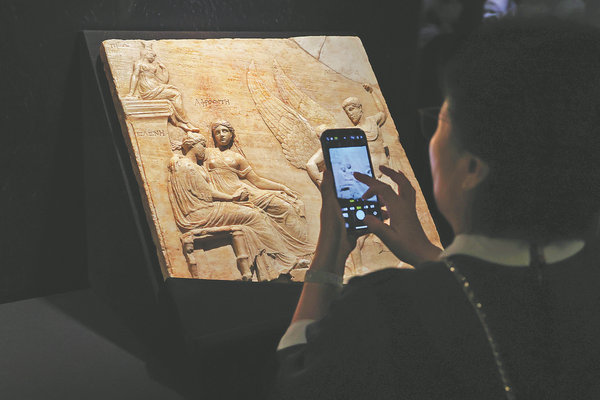Glimpses of the past link us to the future
By Wang Kaihao | China Daily | Updated: 2023-10-26 07:05

With its booming economy, plentiful resources, and astonishing urban and intellectual civilization, the city of Pompeii, which lies close to the Bay of Naples, was an ancient Roman provincial center with a population of between 10,000 and 20,000. Well, it was until one seemingly ordinary autumn day.
On Oct 24 in 79 AD, the violent eruption of nearby Mount Vesuvius killed thousands in this southern Italian city. Its era of prosperity ended in a matter of hours beneath a sulfurous sky. Other towns nearby, like Herculaneum and Oplontis, were also buried in an instant.
From tycoons with refined artistic taste to vulgar tavern goers, the merits and sins, happiness and sorrows of Pompeii's inhabitants were sealed for centuries, until a farmer accidentally stumbled across ancient Roman objects in the area in 1748.
What was later unearthed was more than just another tragic day in history, it was also a stunning trove of beauty.
The German poet Goethe toured Pompeii about 40 years after its ruins were rediscovered.
"Many disasters have befallen the world, but few have brought posterity so much joy."
That joy, despite its ambivalent nature, is now available to history lovers in Beijing. The exhibition Love, Luxury, and Beauty in Classical Antiquity opened at the National Museum of Classic Books in late September, and will run through to mid-December.

Including many relics recovered from volcanic ash, the 127 exhibits — statues, frescoes, painted pottery, bronze ware and glass — are on loan from the National Archaeological Museum of Naples, and will usher people back to an age that helped lay the foundations of Western civilization.
"Before being buried by the volcano, Pompeii was nurtured by Greek and Roman civilization," says Qian Qian, executive curator of the exhibition. "The city thus becomes an excellent means for us to understand them."
She says that Greek and Roman culture lives on today thanks to the passion and interest in Western classical civilization sparked by the rediscovery of Pompeii, which was also a unique event in the history of archaeology.
























